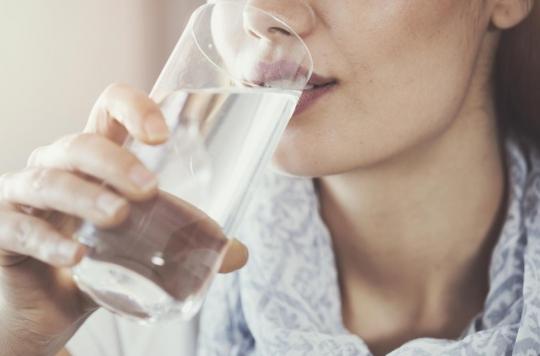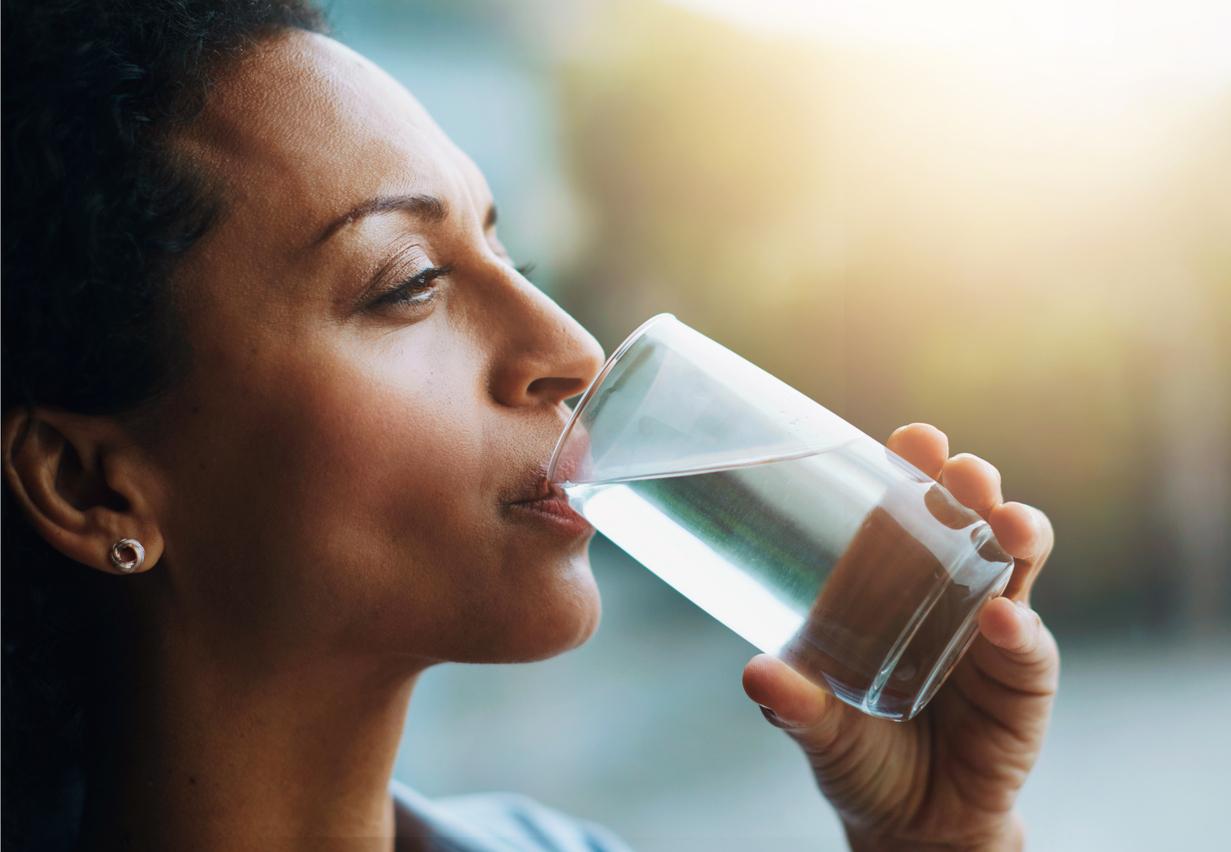Usually, it is recommended to drink at least 1.5 liters of water per day. Why do we need to consume so much?

- By urinating, sweating and breathing, we eliminate around 2.5L of water per day, or even more in the event of extreme heat, pregnancy, fever or physical exertion.
- Water also allows metabolic and toxic wastes to be evacuated, via the hepatic (liver) and renal systems.
- Dehydration is associated with impaired cognitive functions and can induce memory impairment
Water is the main component of our body since an adult organism contains on average more than 60% (depending on the morphology) and the liquid cerebrospinal which surrounds the brain is composed of more than 90%.
Nevertheless, by urinating, sweating and breathing, we eliminate about 2.5L of water per day, or even more in the event of extreme heat, pregnancy, fever or physical exertion. Our solid food only fills 20% of this deficit, so it is essential to our survival and essential to our health to compensate by drinking plenty of water.
Digestion and disposal of waste
The blood carries oxygen to the muscles and the brain, but also nutrients, hormones and antibodies, which is why it is important to maintain a sufficient blood volume, in particular through water intake. Indeed, plasma is the liquid part of blood, which is composed of 90% salt water.
Similarly, water also helps to evacuate metabolic and toxic waste, thanks to the hepatic (liver) and renal systems and plays a role in the absorption, transport and digestion of food since it constitutes 90% of the saliva. Water also serves as a lubricant for joints and eyes, maintains body temperature
Water, an anti-fatigue
The skin is the heaviest organ we have and acts as a protective barrier between the various components of the body (organs, bones, blood, muscles, joints, etc.) and the external environment. It is made up of 80% water, which explains why it becomes more beautiful when we hydrate ourselves.
Concretely, water is the only drink the body needs and has anti-fatigue and anti-stress properties. An uncompensated loss of body water (dehydration) is even associated with an impairment of cognitive functions and can induce disorders of memory, motor skills, concentration and visual attention.
As you will have understood, it is essential that you provide your body with the dose of water it needs to allow you to feel good and be in good health. For that, do not wait to be thirsty to drink. When you are active, you can eliminate a lot of water before you feel thirsty. So you have to get used to drinking throughout the day.
.















